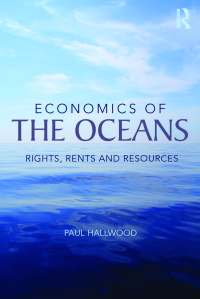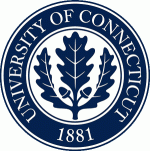 William Alpert and Oskar Harmon presented the paper
William Alpert and Oskar Harmon presented the paper
“Practical Experience with Online/Blended Course Delivery: Questions for Research” at the 75th International Atlantic Economic Conference , Philadelphia, PA, 4-7 October, 2013.
 William Alpert and Oskar Harmon presented the paper
William Alpert and Oskar Harmon presented the paper
“Practical Experience with Online/Blended Course Delivery: Questions for Research” at the 75th International Atlantic Economic Conference , Philadelphia, PA, 4-7 October, 2013.
![rosslarge[1]](https://uconnecon.files.wordpress.com/2012/03/rosslarge1.jpg?w=130) Professor Stephen L. Ross‘s essay with Jason Fletcher on “Understanding the Mechanisms underlying Peer Group Effects: The Role of Friendships in Determining Adolescent Outcomes” was published on Sunday (Nov 3) in Vox: Research-based policy analysis and commentary from leading economists. In this essay, Professor Ross describes the potential importance of social interactions between children as an underlying mechanism behind peer effects, and discusses Professor Fletcher and his work that shows how smoking and drinking of friends can affect substance abuse and how having friends with more educated parents can contribute to positive attitudes leading to higher grades among girls.
Professor Stephen L. Ross‘s essay with Jason Fletcher on “Understanding the Mechanisms underlying Peer Group Effects: The Role of Friendships in Determining Adolescent Outcomes” was published on Sunday (Nov 3) in Vox: Research-based policy analysis and commentary from leading economists. In this essay, Professor Ross describes the potential importance of social interactions between children as an underlying mechanism behind peer effects, and discusses Professor Fletcher and his work that shows how smoking and drinking of friends can affect substance abuse and how having friends with more educated parents can contribute to positive attitudes leading to higher grades among girls.
 Ken Couch will lead a team of UConn researchers in evaluating pilot educational programs for welfare recipients in Connecticut. The two-year evaluation grant, totaling more than $300,000, includes funding for two graduate students to participate in assessing the programs as a randomized study. The educational programs follow the well-known Integrated Basic Education and Skills Training (I-Best) format developed in Washington state. Professor Couch has conducted other research for the state regarding the functioning of the TANF program and participated in a working group that recommended piloting of the I-Best programs.
Ken Couch will lead a team of UConn researchers in evaluating pilot educational programs for welfare recipients in Connecticut. The two-year evaluation grant, totaling more than $300,000, includes funding for two graduate students to participate in assessing the programs as a randomized study. The educational programs follow the well-known Integrated Basic Education and Skills Training (I-Best) format developed in Washington state. Professor Couch has conducted other research for the state regarding the functioning of the TANF program and participated in a working group that recommended piloting of the I-Best programs.
 On September 18, Professor Richard Langlois met with the six students in this fall’s Business and Economics track of the UConn-in-London Program. The students spend seven weeks taking two economics and business courses, then spend seven weeks on in internships with a London-based business. (From left to right are Andrew Pierson, Curtis McLellan, Michael Jones, Ding Zhang, Nicole Nonnenmacher, and Ross Bauer.)
On September 18, Professor Richard Langlois met with the six students in this fall’s Business and Economics track of the UConn-in-London Program. The students spend seven weeks taking two economics and business courses, then spend seven weeks on in internships with a London-based business. (From left to right are Andrew Pierson, Curtis McLellan, Michael Jones, Ding Zhang, Nicole Nonnenmacher, and Ross Bauer.)
While in England, Professor Langlois also met with officials of the UConn London program; gave a talk at the University of Wolverhampton; and presented a paper at the Workshop on Institutions and Economic Change in Hitchin, Herts.
 Routledge is publishing Professor Paul Hallwood‘s book, Economics of the Oceans, due out in February 2014.
Routledge is publishing Professor Paul Hallwood‘s book, Economics of the Oceans, due out in February 2014.
On the Contents page Hallwood writes:
On the surface of the blue-green planet people have fought over the green bits for ages. However, because they didn’t seem worth fighting over, they hardly bothered with the blue bits. Strange as it might seem, the green bits are mainly well tended while the blue bits are in awful disrepair. Why is this? Let’s see if we can find out.
He then attempts to answer this question in 23 chapters using the tools of environmental economics, natural resource economics, and law and economics.
Professor Jorge Agüero has been awarded a small grant from the Inter American Development Bank (based in Washington, D.C.) for his project “Long-Term Effect of Climate Change on Health: Evidence from Heat Waves in Mexico.
Abstract
I use random year-to-year variation in temperature to estimate the long-term effects of climate change on health outcomes in Mexico. Using temperature data at the district level and three rounds of nationally representative household surveys, I match an individual’s health as an adult with the history of heat waves in each stage of her life cycle until adulthood. This provides a sample of over 75,000 individuals born between 1960 and 1990. The richness of the data allows me to contribute to the existing literature in several ways. First, I use temperature data within states, which permits a more precise estimation of the effect of climate change. Second, I estimate the long-term effects by examining whether exposure to extreme temperatures early in life affects adult health. Third, the model permits the comparison of exposure early in life vis-à-vis later periods, allowing me to identify the critical health periods with respect to temperature. Finally, the project will explore heterogeneous effects by gender, location, poverty level of the area, and access to resources. The results of this investigation will provide academics and policy makers with the most comprehensive analysis about the long-term effects of climate change on health outcomes in the region.
More info to come as the project moves forward.
Congratulations, Professor Agüero.
 Professor Kai Zhao has had his article titled “War Finance and the Baby Boom” for publication in Review of Economic Dynamics.
Professor Kai Zhao has had his article titled “War Finance and the Baby Boom” for publication in Review of Economic Dynamics.
The abstract of the article is below.
In this paper, I extend the Barro-Becker model of endogenous fertility to incorporate specific fiscal policies and use it to study the effects of the fiscal policy changes following WWII on fertility in the United States. The US government went through large changes in fiscal policy after the beginning of WWII. The marginal income tax rate for an average American jumped from 4% on average before 1940 to approximately 25% during the war and stayed around 20% afterwards. The government debt-GDP ratio jumped from approximately 30% on average before WWII to 108% in 1946 and then dropped gradually in the following two decades to about 30% again at the end of 1960s. I find that the dramatic increase in the marginal income tax rate was an important cause of the postwar baby boom in the US because it lowered the after-tax wage and thus the opportunity cost of child-rearing. I also find that the differential change in taxes by income was an important reason why the baby boom was more pronounced among richer households (as documented by Jones and Tertilt (2008)). Furthermore, I argue that the government’s debt policy may also matter for understanding fertility choices because government debt implies a tax burden on children in the future and thus affects their utility, which is a key determinant of current fertility choice in the Barro-Becker model. The results of a computational experiment show that the US government’s postwar debt policy also contributed to the baby boom, but its quantitative importance is relatively small.
The article in its entirety may be read on the Economics Department’s Working Paper Series.
Professor Prakash discusses the results of his and Karthik Muralidharan’s IGC project involving providing free bikes to girls in rural Bihar.
Watch the discussion: http://www.youtube.com/watch?v=_4bJtCWnL2I
The above video is also featured on the Mankiw blog, as well as the homepage of the IGC.
Archita Banik defended her dissertation on Monday, July 22nd 2013. Her dissertation entitled “Three Essays on Health Economics” was completed under the supervision of her major advisor Dennis Heffley and associate advisors Thomas Miceli and Nishith Prakash.
Archita’s dissertation analyzes an incentive-based health insurance plan in the context of developing countries and also examines the importance of different socioeconomic factors and presence of microcredit in determining ever-married women’s health in the context of India. The first essay of her dissertation is a theoretical analysis where she analyzes an individual’s behavior with misperceived health risk under incentive-based health insurance plan vs. a conventional plan. The other two essays are empirical studies in the context of India where she shows that age, education, marital status, and presence of microcredit are important factors in determining ever-married women’s health in India.
Archita is heading to Bloomsburg University of Pennsylvania, where she will join as a tenure-track assistant professor of economics starting from Fall.
Congratulations, Archita!
![t_prakash[1]](https://uconnecon.files.wordpress.com/2012/07/t_prakash1.jpg) Two of Professor Nishith Prakash’s works have been cited recently in the media.
Two of Professor Nishith Prakash’s works have been cited recently in the media.
His work with Aimee Chin concerning affirmative action in India was cited in The Economist.
A paper he collaborated on with Chin and Mehtabul Azam was cited by Business Standard.
Professor Prakash is currently in India collecting data for his Affirmative Action project. Later this month he will be in the state of Bihar holding meetings with government officials and school authorities for a new project focused on reducing gaps in learning outcomes across different caste groups.